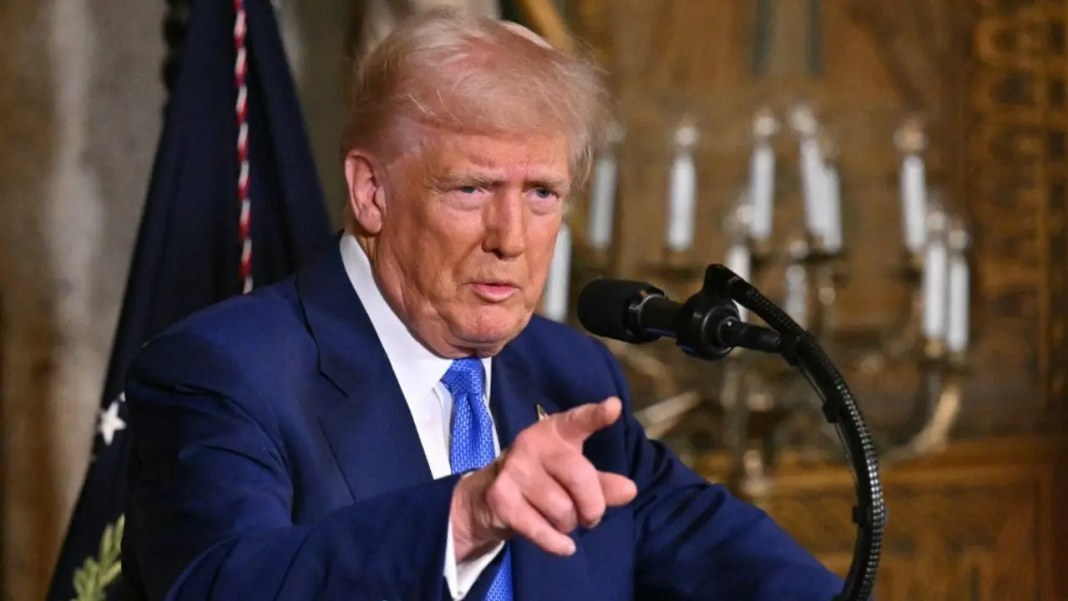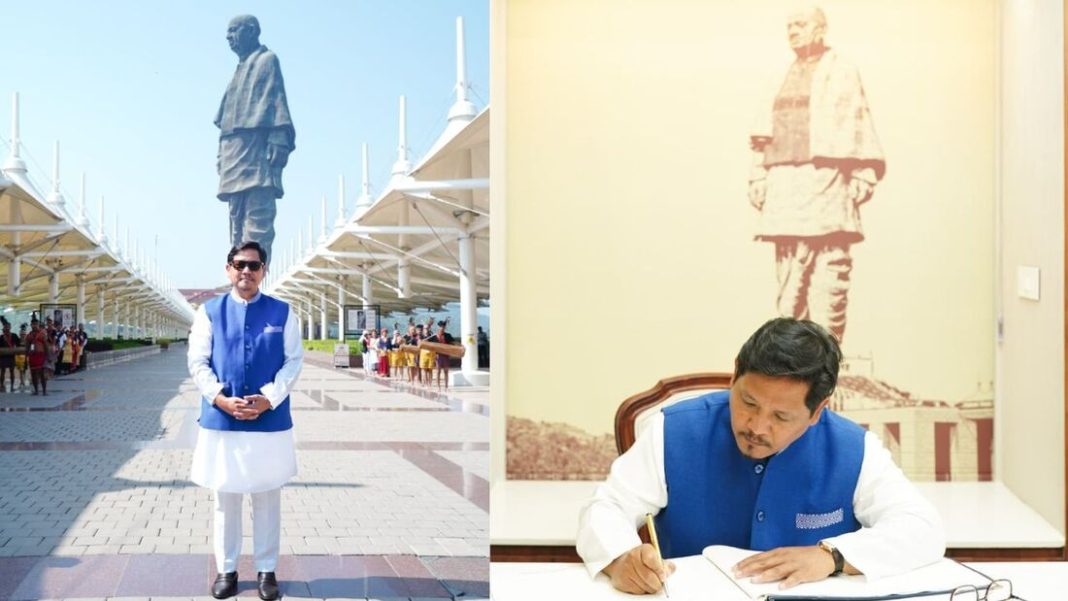Jerusalem, Nov 12: US President Donald Trump on Wednesday sent a letter to Israel’s president asking him to pardon Prime Minister Benjamin Netanyahu in a long-running corruption trial that has bitterly divided the country.
It was the latest attempt by Trump to intervene in the case on behalf of Netanyahu, raising questions about undue American influence over internal Israeli affairs. Trump also called for a pardon for Netanyahu during a speech to Israel’s parliament last month, when he made a brief visit to promote his ceasefire plan for the war in Gaza.
In Wednesday’s letter to President Isaac Herzog, Trump called the corruption case “political, unjustified prosecution”.
“As the Great State of Israel and the amazing Jewish People move past the terribly difficult times of the last three years, I hereby call on you to fully pardon Benjamin Netanyahu, who has been a formidable and decisive War Time Prime Minister, and is now leading Israel into a time of peace,” Trump wrote.
Netanyahu is the only sitting prime minister in Israeli history to stand trial, after being charged with fraud, breach of trust and accepting bribes in three separate cases accusing him of exchanging favours with wealthy political supporters.
Netanyahu rejects the allegations, and in Trump-like language has condemned the case as a witch hunt orchestrated by the media, police and judiciary. Netanyahu has taken the stand multiple times over the past year, but the case has been repeatedly delayed as he has dealt with wars and unrest stemming from Hamas-led militant attacks of October 2023.
Israel’s presidency is a largely ceremonial office, but the president does have the authority to grant pardons.
Herzog acknowledged receiving the letter, but said that anyone seeking a presidential pardon must submit a formal request.
Herzog has declined to say how he would respond to a request by Netanyahu, saying publicly only that he believes the trial has been a distraction and source of division for the country and that he would prefer to see Netanyahu and the prosecution reach a settlement.
When Trump called for a pardon in his speech last month, he received a raucous standing ovation from Netanyahu’s allies in parliament.
But it has also raised questions about American influence over Israeli policies, especially relating to security in the Gaza Strip. Those concerns came to a head during a series of visits from senior American leaders, from Vice President JD Vance to Secretary of State Marco Rubio.
Israeli media called the visits “Bibi-sitting,” a word play on Netanyahu’s nickname, saying the officials were coming to ensure that Israel continues to hold up its side of the fragile ceasefire. Both Netanyahu and Vance rejected the suggestions and say the countries have a tight partnership.
Opposition Yair Lapid noted that the pardon could have unintended consequences for Netanyahu. “Reminder: Israeli law stipulates that the first condition for receiving a pardon is an admission of guilt and an expression of remorse for those actions,” he wrote on X.
According to Israeli law, a presidential pardon can only happen for Netanyahu if Netanyahu makes a formal request, which sets in motion a long procedure that includes recommendations from the Justice Ministry, said Amir Fuchs, a senior researcher at the Jerusalem-based think tank Israel Democracy Institute and an expert in constitutional law.
Fuchs added that pardons are usually issued for people who are convicted of a crime. “Pardon is a word for forgiveness, a pardon without some kind of admission of guilt is very unusual and even illegal,” said Fuchs.
He also said that if a pardon were granted after the Trump letter, it risked giving a “green light” to corruption. “The message will be undermining of rule of law,” he said.
In June, Trump also condemned Netanyahu’s trial as a “WITCH HUNT,” using the same language that both he and Netanyahu have long used to describe their legal woes. Both contend they are the victims of hostile media, crooked law enforcement and political opponents. (AP)




